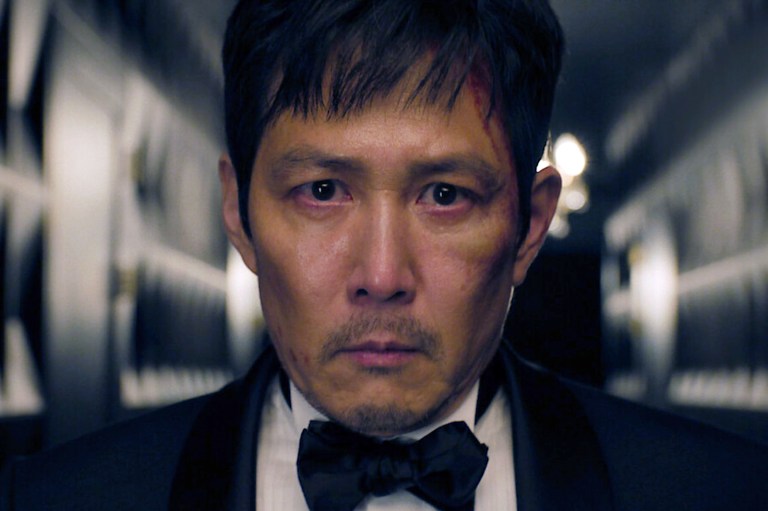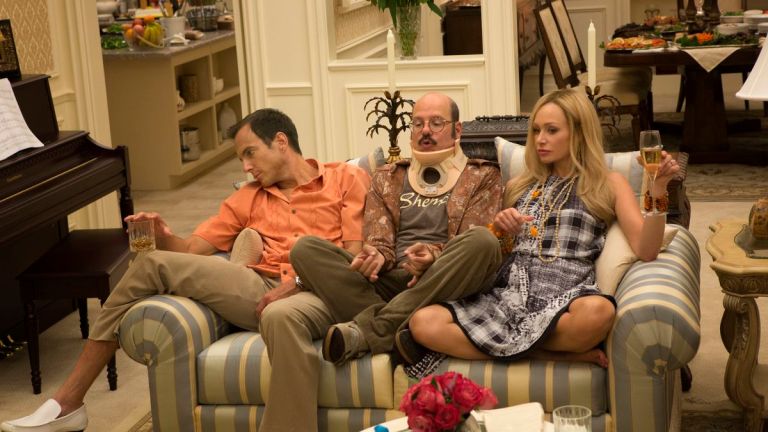
I Married The First Person I Had Sex With — Here’s What You Should Know Before Doing The Same
There is no such thing as 'The One.' No matter how special they might seem, no matter how much I put them on a pedestal, sooner or later I’m going to learn the truth that they’re just another human. I recommend not getting married, which is, by definition, a life-long commitment, until you’ve done a…
By ![]() Duncan Riach
Duncan Riach
She stroked my leg under the table in the Student Union. I liked that, so I married her. I’m serious. This is what I’m like; I tend to go all-in immediately. I commit like crazy. At least this is what I used to be like. I’ve changed a lot since then.
Soon we had sex, first in bed, and then in the shower. It was pretty good. Three months later, I proposed to her in bed in Paris. That was the same bed we spent most of our time in while in Paris. I proposed to her because I didn’t want to lose her.
Next, I went out and spent the last few hundred pounds of my bank overdraft on an engagement ring. I took her to the top of the Eiffel Tower and officially proposed to her there. I did this mostly because I was trying to be romantic, trying to do what you’re supposed to do.
A few years later we married, and flew off into the sunset to start a new life in America. By the time we divorced, we had lived together for around eleven years, and had been married for nine. That was a long period of my life, and it was rich in learning. Here’s what I learned.
People change
I was about 22 when I got married. At that age, my personality was just about crystalized. It would take a couple more years, until the age of about 24, for my pre-frontal cortex to fully develop. I was a child when I got married, and even more of a child when I got engaged. I didn’t know what I wanted, or even who I was. I didn’t have the ability to be aware of my emotions, or to know what I felt about my thoughts.
As we get older, our personality fixations hopefully soften, and we develop more dexterity in our ability to cope with things emotionally. We develop increasing choice and self-awareness. At least this is what happens when we are open to growth, integration, and feedback. This kind of change occurs particularly rapidly if we increase self-awareness through meditation and therapy or coaching.
I started meditating at around the age of 27, and I started to change a lot. I became less accommodating. I was less willing to just do whatever my wife wanted without taking into account what I wanted. That was a big change in our dynamic. I had been the provider, the problem solver, the planner, and the one who made everything work smoothly. Now I started to let go of that. I wasn’t interested in making everything go smoothly anymore. I wanted to chill out a little and do nothing. I wanted to put my feet up and relax when I got home from work.
In any relationship, the partners mesh together like a pair of cogs, with teeth interleaved. When one of the people starts to change, it can wreak havoc on the relationship. In that marriage it did. The breaking point was when my son was not returned to me (I’ll explain later). That’s when I started intensive psychotherapy, which of course led to more change, which made our marriage even worse. In hindsight, I probably should have visited an international lawyer instead of spending the next few years fighting for a marriage that was inevitably falling apart.
Don’t get me wrong, change is not bad. In fact, change is good. Increasing self-awareness is very good, very important. It’s what’s necessary to live a fulfilling and healthy life. I recommend meditation, therapy, and coaching to everyone. The thing is, we all change, and we change a heck of a lot in our twenties, especially if we’re meditating and getting therapy or coaching.
I recommend not getting married, which is, by definition, a life-long commitment, until you’ve done a lot of inner work.
Only do what you want
As much as possible, take action based on what you truly want, not based on what you think is “right” or “acceptable.” Every decision I ever made that went against what I truly wanted came back to bite me in the ass. Each of those decisions, which may have looked “right” to outside parties, or on paper, or to my conscience, ended up leading to outcomes that I wanted even less.
When my wife would not return from vacation in our country of birth with my baby son, I dropped everything to keep our family together. I reverted to my role as the problem solver. I bought and sold houses at great financial loss, compromised my career, left my community, relinquished my green card, and spent years entangled in complex and expensive international tax scenarios. I wanted to keep my family together, but I didn’t want all of that. I took action that I thought was “right.” I thought I was being a “good” husband. I thought I “should” put my family first.
With hindsight, I see that if I had not taken action, if I had stood my ground, if I had spent time feeling what I wanted, validating it, and enjoying the empowered feelings associated with that, I would have made very different decisions. The outcomes would have been very different, and probably much more in alignment with what I truly wanted. Perhaps the outcomes would have been less destructive for everyone, including my son, and including myself.
I’m not writing this to bitch about my ex-wife. I don’t even have anything negative to say about her. I’m also not writing this to dwell on mistakes and feel bad about them. I’m examining this part of my life with you, right now, in order to both gain and impart as much value from it as possible.
When I look back, I know that it was very clear to me what I wanted, and I chose to go strongly against that, to not trust that, to not honor that. I believe that everything I wanted, regardless of what was “right,” could have been available to me if I had stood firm in my authority and my power, the power of honoring what I wanted.
“Right” is just a dead mental concept. What you truly want is living and powerful, and your clear intuition, your drive and motivation, can be trusted. What you truly want is all you can really know for sure. whereas what’s “right” is usually wrong.
Every relationship is a success
All relationships are successes. We gain so much experience from being in relationship, especially a “bad” relationship. All of life is about relationship, and we get to practice relationship particularly intensely in intimacy with our partner. All of our transference comes up as we begin to see the positive and negative traits of our parents in our partner. We get to heal, or deepen, the wounds of our childhoods with our partner. And then we get to reflect on that, and to integrate and grow.
All relationships have a natural end. For some relationships the end comes with death. For others the end comes with separation or divorce. It might seem that some relationships would have been even more successful had they ended sooner, with less suffering and hurt. However, relationships always end when they do, and when they do turns out to be when one or both people understand that they should.
My wife divorced me. Even though it destroyed my life as I knew it, I don’t take it personally. It was her right. In hindsight, I would have been happier had she done it much sooner.
Cultivate quality friendships
For a long period before we divorced, and though I was back in my country of birth, I felt isolated. We lived in a relatively remote region with few local friends, and I was busy working from home. Nearly all of my human contact was with my toddler son, and my wife. When she asked me to leave our family home, I reluctantly complied, and desperately began to seek her favor, trying to persuade her to change her mind. I was desperate to achieve my goal of keeping our family together. My identities as a husband and a father were also under threat.
During this time, I started to make friends. I made some really close friends through doing The Hoffman Process, which I strongly recommend to everyone. It’s available in many different countries. I spent time with people who cared about me, who loved me, who had compassion for me. These people treated me kindly.
I experienced long periods of being away from my wife, periods with people who treated me kindly. Then I would visit her, and try to persuade her to not divorce me. My experience of her during those time was a great contrast with that of being with my friends. I began to realize that I didn’t want to be with her either. It was like I was waking up from a deep sleep. I hadn’t realized how unpleasant it had been for me to be with her. It had been constantly painful for years.
Since divorce, I have cultivated and maintained many friendships. I have also made sure to take frequent breaks from my intimate relationships. I did this so that I could get a clear perspective on what it’s actually like to be with that person. If you’re not enjoying and benefitting from being in a relationship, and things cannot be resolved, then you have an opportunity to grow even more by ending the relationship.
The world is full of people who are waiting to give you love and compassion. Seek them out, enjoy them, and celebrate them. Don’t waste your life being stuck with people with whom you’re not compatible, with whom you don’t mesh.
Commit appropriately
When my wife did not return from abroad with my son, without my consent and without consulting me, I now understand that the implicit message she was sending to me might have been, “I’m not working with you. I’m acting unilaterally and autonomously from you.” Instead of listening to that implicit but clear message, and matching the level of commitment in my actions, I dived in and doubled-down on my commitment to her. I sacrificed my own foundational position of strength, over-reached my center of balance, and committed to someone who was not supporting me.
I have a tendency to overcommit. I had to learn to pay attention to the signs of willingness to commit from the other person and then match that.
In more than one subsequent relationship, my partner has complained about me to my face, or to others, “You’re too anxious,” or “You’re too jealous.” This last one was projection: I suffer from many weaknesses, but romantic jealousy is definitely not one of them. I have learned to match the sentiment. I now take the position of, “I understand that you think I’m too anxious for you. I love you, and I want you to be happy. I wonder if it makes sense for you to be with me.” I have also learned that sometimes my partner just needs a hug.
In a broader sense, I have learned to not chase after people who are pushing me away. On the flip side, I have learned to not run away from people who are pulling me in. Note that some people, and I’m not referring to my ex-wife, like to pull us in so that they can then push us away, or push us away so that they can then pull us in. Handle such people with caution.
We’re attracted to dysfunction
You know when you see that person who seems magical and you just want to be with them no matter what? That’s called limerence. What’s happening is that your unconscious, disowned parts see an opportunity to get into a protracted battle with their unconscious, disowned parts.
Beware of limerence. Have lots of relationships so that you can learn that we’re all just humans, sacks of blood and bones and guts. We’re all saddled with endless psychological tics and insecurities. Inside, we’re all ugly as fuck, and yet super-lovable at the same time.
One of the main things I have learned from starting and ending many relationships is this fundamental truth: this one is not “the one” (there is no “the one”). No matter how special they might seem, no matter how much I put them on a pedestal, sooner or later I’m going to learn the truth that they’re just another human. They’re struggling through life too, and I’m going to be challenged to love them warts-and-all. I’m going to be challenged to love the parts of myself that I have disowned. I’m going to have to learn to love the parts of myself that I have projected onto this other person.
With enough experience, when you find yourself attracted to someone, and you get that sense that they’re somehow special, you begin to recall the truth. You know how this goes. You know how this story plays out. It always plays out the same way. Boy meets girl, they put each other on pedestals, then they learn the truth about each other (really about themselves), then they struggle, finally they either accept reality and go deep, or they experience a painful and growthful break up.
Conclusion
What I want you to take from this article is a sense of the importance of getting to know yourself deeply first. Spend your twenties getting to know who you are and what you want. If your twenties are in the past, then start now. Meditate and get coaching or therapy. Learn to validate what you want and go for it. Prioritize taking care of yourself. At the same time, get lots of experience by starting and ending many relationships. By doing this, you will find out what you like and want, and you will be able to develop a contrast between the different relationships. At the same time, by developing deep friendships, you will have a reference point of what if feels like to be cherished. Good luck. ![]()











